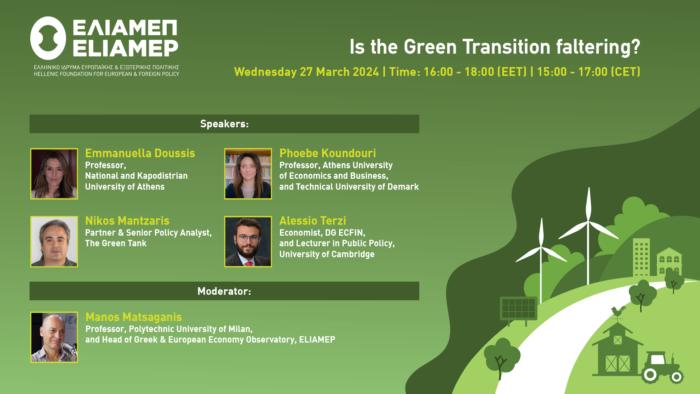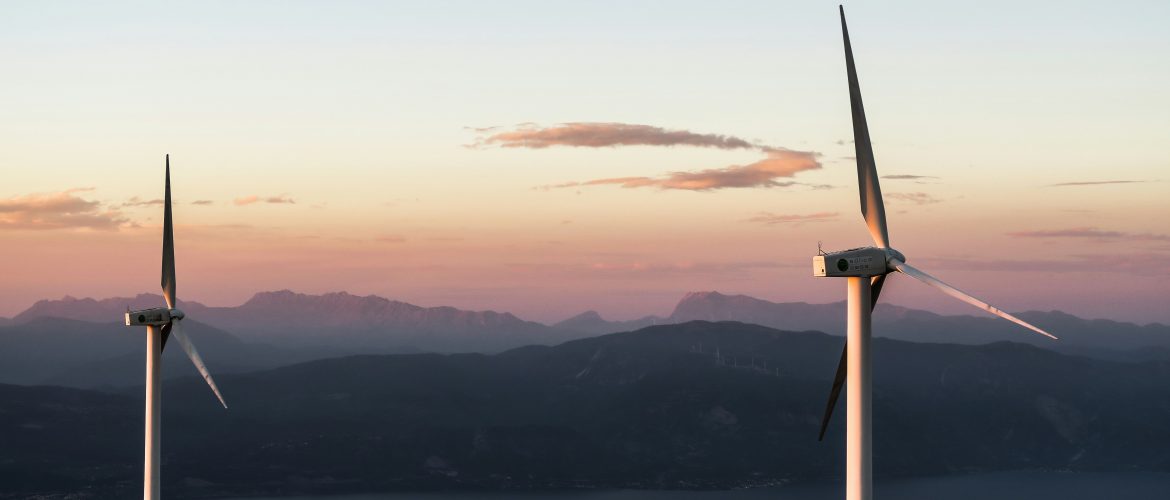Nikos Mantzaris and three other policy experts were called to answer the titular question during an online panel organized by ELIAMEP on Wednesday 27 March.
The participants were asked 5 questions on topics ranging from the future of the Green Deal in a volatile European political environment, the challenge of maintaining the competitiveness of European industry while reducing its carbon footprint, the social challenges that the Green Transition has already brought about and Greece’s climate performance.
First, commenting on the COP28 agreement, Green Tank’s policy analyst pointed out that it is particularly worrying that strong commitments to fossil fuel decarbonisation are missing. However, there is a glimmer of hope since an increasing number of economies are turning to clean energy.
On developments with the recent concessions of the European Commission towards farmers, Nikos Mantzaris stressed that the Commission’s proposals aim to protect biodiversity as well as water and soil quality, and are therefore compatible with the long-term interests of farmers. He attributed the reactions and subsequent backtracking by the European Commission to pressure from big farmers, whose interests would be affected as a result of the proposed changes, and their coalition with conservative and far-right political groups in Europe.
 In this context, he proposed a Europe-wide information campaign for all farmers, combined with changes to the farm subsidy system and rewards for practices that respect the health of ecosystems.
In this context, he proposed a Europe-wide information campaign for all farmers, combined with changes to the farm subsidy system and rewards for practices that respect the health of ecosystems.
The next question posed was how the European industry could become greener while remaining competitive. As a response, it was argued that European resources should be used to ‘transform’ industrial processes to reduce their carbon footprint.
Regarding the political and social reactions to the Green Deal (the ‘greenlash’), it was considered that, on the one hand, they exist and are worrying, but on the other hand the Green Deal is now firmly established in the political system and society of the European Union.
According to Nikos Mantzaris, unlike the energy crisis, the policies that are being planned (such as the ETS-2) are already known and the EU-27 can prepare for them. He reminded the findings of the analysis by The Green Tank and Facets, according to which Greek households can save up to 1.6 billion euros from their energy bills in 2030.
Finally, on Greece’s performance in the fight against the climate crisis, he noted that our country is among the EU-27 leaders in reducing the carbon footprint of electricity production. However, it needs to improve in the road transport, buildings and industry sectors.
The other participants in the discussion were:
- Emmanouela Doussis, Professor at the University of Athens and member of the Green Tank Advisory Committee
- Phoebe Koundouri, Professor, Athens University of Economics and Business & DTU, Denmark
- Alessio Terzi, Economist, DG ECFIN, and Lecturer at the University of Cambridge
Moderator: Manos Matsaganis, Professor at the Polytechnic University of Milan and Head of ELIAMEP’s Observatory of Greek and European Economy.
You can watch the event here.



















































































































































































































































































































